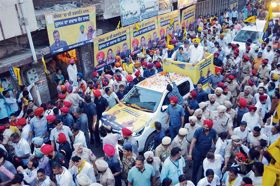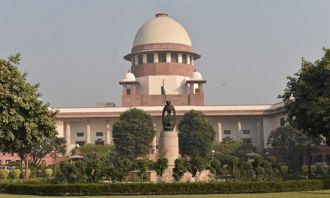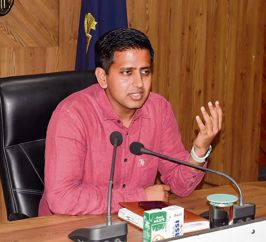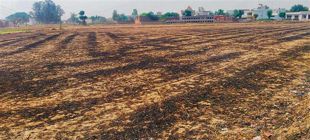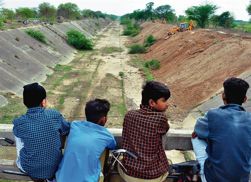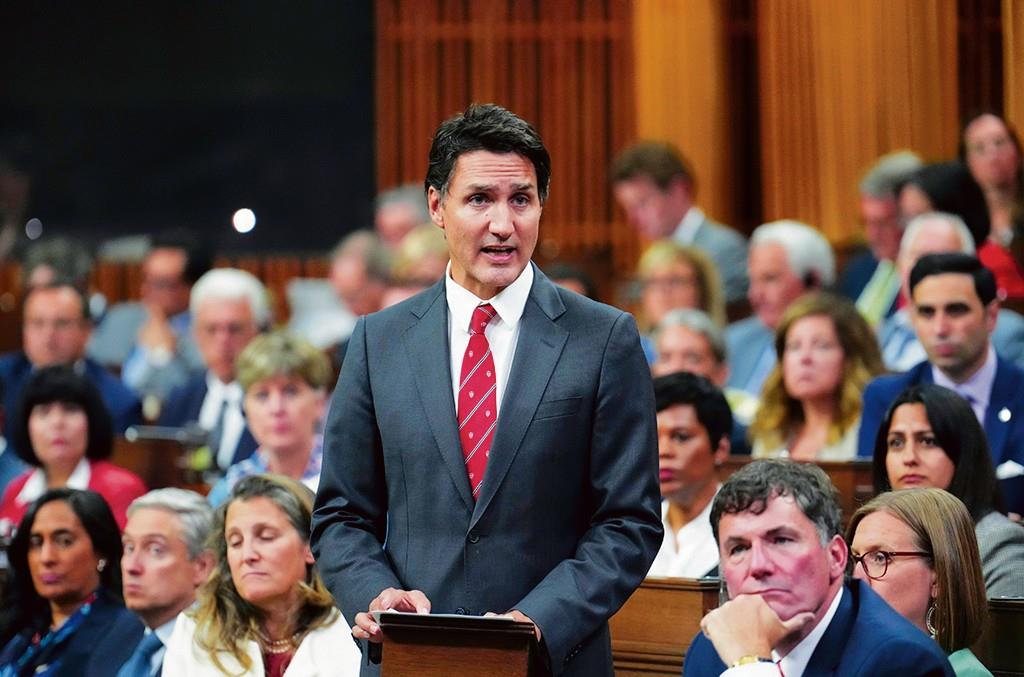
Canadian PM Justin Trudeau
Sandeep Dikshit
New Delhi, September 19
A new chill entered India’s already frosty ties with Ottawa after New Delhi expelled station head of Canadian intelligence Olivier Sylvestere and vigorously contested PM Justin Trudeau’s charge that his security agencies were “pursuing credible allegations” that linked Indian Government agents to the murder of Sikh separatist leader Hardeep Singh Nijjar.

Nijjar, 45, chief of the banned Khalistan Tiger Force (KTF) and one of India’s most-wanted terrorists, was shot dead by two gunmen outside a gurdwara in Surrey on June 18.
Attack on sovereignty
Our agencies pursuing credible charges of potential link between Indian Govt agents and killing of a Canadian… unacceptable violation of our sovereignty.
— Justin Trudeau, Canada PM in house of commons
The Foreign Office here summoned Canadian High Commissioner Cameron MacKay on Tuesday and expelled a senior diplomat after Canada asked an Indian diplomat, reportedly station chief of RAW Pavan Kumar Rai, a 1997-batch Punjab-cadre IPS officer, to leave the country.
Nijjar Headed KTF
- Born in 1977 in Jalandhar, Nijjar moved to Canada in 1997
- Initially linked to the BKI, he later became KTF chief
- Trained, financed KTF members
- Elected head of a gurdwara in Surrey; shot on June 18
Bid to shift focus
Absurd and motivated allegations… seek to shift focus from Khalistani terrorists who have been provided shelter in Canada and continue to threaten India’s sovereignty. MEA
In retaliation, Sylvestere has been asked to leave India within five days. The spat deals a fresh blow to the diplomatic ties that have been fraying for years, with New Delhi unhappy over Sikh separatist activity in Canada. It now threatens trade ties too, with talks on a proposed trade deal frozen last week. In a strongly worded statement, the MEA said, “The allegations of the government’s involvement in any act of violence in Canada are absurd and motivated… Similar allegations were made by the Canadian PM to our PM, and were completely rejected.”
Indira’s plea before kanishka went unheeded
- Lackadaisical Canadian response to Indian concerns over pro-Khalistani activity led to loss of 329 lives in Kanishka bombing of 1985
- In 1982, then PM Indira Gandhi had sought extradition of Talwinder Parmar but Trudeau’s father Pierre, the then PM, rejected the request
The MEA felt the “unsubstantiated allegations” were meant to divert the focus from “Khalistani terrorists and extremists who have been provided shelter in Canada” while urging Canada to take prompt and effective legal action against all anti-India elements operating from its soil.
Canada issues advisory on travel to india
- Easy asylum, haven for Sikh hardliners
- Nijjar fled to Canada on fake passport
- Gangsters wanted here, but free there
- Life goes on as usual in Nijjar’s village
On Sylvestere expulsion, it said, “The decision reflects the government’s growing concern over the interference of Canadian diplomats in our internal matters and their involvement in anti-India activities.” Hours later, Trudeau said he was not looking to “provoke” India or “escalate” tensions, but urged New Delhi to take the matter with “utmost seriousness”.
Earlier, Trudeau and his Foreign Minister Melanie Joly harped on violation of sovereignty due to a foreign government’s hand in Nijjar’s killing with the Canadian PM specifically naming India while addressing Parliament.
Trudeau also claimed he had raised the matter directly with PM Narendra Modi during their brief “pull-aside” on the sidelines of the G20 summit here on September 10, and had urged New Delhi to cooperate with Ottawa to resolve it. The MEA had then said PM Modi had expressed strong concern with Trudeau over recent demonstrations in Canada by Sikhs calling for an independent nation.
Sensing the discordance, Canada last week announced that it would not send its trade minister for talks on a treaty.
Join Whatsapp Channel of The Tribune for latest updates.






















